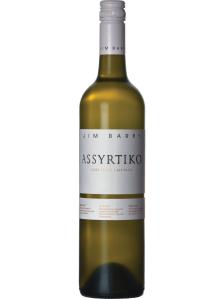-
中文名:
-
英文名:Assyrtico
-
种植区域:
-
香气:
-
颜色:
Assyrtico is arguably Greece's most iconic grape variety, grown most famously on the volcanic island of Santorini in the Aegean sea. It has developed a reputation as being a versatile grape variety, and wines are made in a multitude of styles, from fresh, minerally white wines to rich, nutty dessert wines known as Vinsanto. It is planted as far north as Drama in Greek Macedonia, and is also occasionally seen in Retsina.
The vines on Santorini can reach 70 years old and are some of the oldest vines in Greece. This is because the harsh volcanic conditions on the island have prevented the spread of phylloxera and, unlike most of Europe, the vines do not need to be grafted onto phylloxera-resistant rootstocks. Advanced vine age tends to have an effect on wine quality as yields are reduced, and Assyrtico has the potential to make some very complex wines.
Despite this obvious advantage, the Santorini terroir offers up some challenges that have affected winegrowing significantly. The island is dry enough to be classified as a desert on the Köppen climate scale, and very windy to boot. Growers have adapted to these conditions by training their vines into "baskets", essentially winding the canes into a protective ball around the fruit. This shelters grapes from strong winds, and the lack of water in the soil means growers will space vines further apart than is usually seen.
One of the traits of Assyrtico is that it is very susceptible to oxidation. This has been exploited by Santorini winemakers in the making of sweet Vinsanto wines. By controlling the level of oxidation, producers can create darker wines with fig, coffee, kirsch and chocolate characteristics. Such is the grape's versatility, however, that it can also be made into a dry wine that is yellow-gold in color with mineral, pear, apple and citrus-blossom aromas and flavors. Naturally high acidity means that Assyrtico wines can age for many years.
Assyrtico is often blended with Athiri and Aidani on its native Santorini, in both sweet and dry styles. These two varieties are lower in acid than their more famous stablemate, and help to tame some of Assyrtico's natural exuberance, although they are usually minor components of the blend.
Assyrtico can also be used in a Retsina blend, but this appears to be falling from favor as more varietal Assyrtico wines are being crafted.
Synonyms include: Asyrtico, Assyrtiko, Asyrtiko.
Food matches for Assyrtico include:
- Fried haloumi cheese
- Korean pancakes with shellfish
- Rock oysters with white-wine vinaigrette


